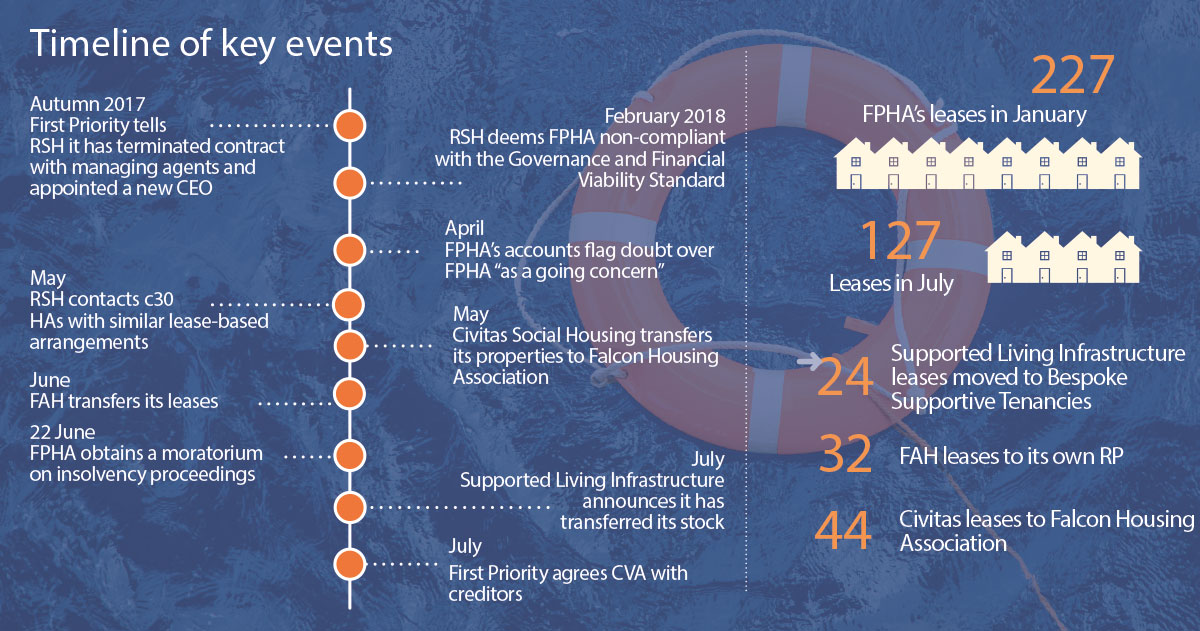The Basics of Corporate Voluntary Agreement: What You Need to Know
The Basics of Corporate Voluntary Agreement: What You Need to Know
Blog Article
Ultimate Overview to Comprehending Company Volunteer Arrangements and How They Benefit Organizations
Company Volunteer Arrangements (CVAs) have actually become a tactical tool for companies looking to browse economic challenges and reorganize their operations. As the business landscape continues to develop, recognizing the complexities of CVAs and exactly how they can favorably impact business is crucial for informed decision-making.
Recognizing Company Volunteer Contracts
In the realm of company administration, a basic idea that plays a pivotal duty in forming the relationship between stakeholders and firms is the elaborate mechanism of Company Voluntary Arrangements. These agreements are voluntary commitments made by business to stick to specific standards, techniques, or objectives beyond what is legally required. By becoming part of Company Volunteer Agreements, firms demonstrate their dedication to social responsibility, sustainability, and ethical company practices.
One trick facet of Company Volunteer Contracts is that they are not lawfully binding, unlike regulatory needs. Companies that willingly dedicate to these agreements are still expected to promote their guarantees, as failing to do so can result in reputational damage and loss of stakeholder count on. These arrangements usually cover locations such as environmental protection, labor rights, diversity and incorporation, and neighborhood involvement.

Advantages of Corporate Voluntary Agreements
Moving from an expedition of Company Voluntary Contracts' value, we currently transform our attention to the substantial advantages these agreements provide to firms and their stakeholders (corporate voluntary agreement). One of the main benefits of Company Voluntary Contracts is the chance for companies to reorganize their financial obligations in an extra convenient means.
Moreover, Company Volunteer Arrangements can enhance the business's track record and relationships with stakeholders by demonstrating a commitment to resolving financial difficulties properly. By proactively looking for solutions via volunteer agreements, organizations can showcase their devotion to maintaining and satisfying obligations depend on within the market. These agreements can offer a degree of privacy, allowing business to function with financial problems without the public examination that might go along with other restructuring options. In General, Business Voluntary Arrangements work as a calculated tool for companies to browse monetary obstacles while maintaining their relationships and operations.
Process of Applying CVAs
Comprehending the process of carrying out Corporate Voluntary Contracts is important for firms seeking to navigate economic obstacles efficiently and sustainably. The very first step in carrying out a CVA includes appointing an accredited insolvency practitioner that will function very closely with the business to assess its monetary situation and stability. This initial assessment is essential in establishing whether a CVA is the most ideal service for the firm's monetary troubles. When the choice to wage a CVA is made, a proposal outlining how the firm plans to settle its lenders is prepared. This proposition has to be authorized by the business's lenders, that will elect on its approval. If the proposal is accepted, the CVA is applied, and the company needs to stick to the agreed-upon repayment strategy. Throughout the execution process, routine communication with financial institutions and diligent economic administration Discover More Here are key to the effective execution of the CVA and the business's eventual financial recuperation.
Trick Factors To Consider for Businesses

Another vital consideration is the degree of openness and communication throughout the CVA procedure. Open up and honest communication with all stakeholders is important for developing count on and ensuring a smooth implementation of the agreement. Organizations should also take into consideration seeking specialist guidance from economic experts or lawful experts to browse the complexities of the CVA process properly.
Additionally, services need to assess the long-term ramifications of the CVA on their reputation and future funding opportunities. While a CVA can provide instant alleviation, it is necessary to examine exactly how it might influence relationships with financial institutions and investors in the future. By carefully considering these crucial variables, companies can make enlightened decisions concerning Business Voluntary Agreements and establish themselves up for an effective economic turnaround.
Success Stories of CVAs in Activity
Several businesses have actually effectively implemented Corporate Voluntary Contracts, showcasing the effectiveness of this monetary restructuring tool in rejuvenating their operations. One notable success story is that of Firm X, a having a hard time retail chain encountering insolvency due to placing financial debts useful site and declining sales. By participating in a CVA, Business X was able to renegotiate lease agreements with landlords, decrease expenses costs, and restructure its financial debt commitments. As an outcome, the business was able to support its economic placement, improve cash circulation, and avoid bankruptcy.
In an additional circumstances, Business Y, a production firm burdened with legacy pension responsibilities, used a CVA to rearrange its pension obligations and improve its operations. Via the CVA procedure, Business Y attained considerable expense savings, enhanced its competitiveness, and safeguarded long-lasting sustainability.
These success stories highlight exactly how Corporate Voluntary Arrangements can offer struggling services with a practical path in the direction of economic healing and operational turnaround. By proactively dealing with economic challenges and reorganizing responsibilities, firms can emerge more powerful, much more active, and better positioned for future development.
Verdict
In final thought, Corporate learn the facts here now Volunteer Arrangements offer companies a structured approach to dealing with monetary troubles and restructuring debts. By applying CVAs, business can avoid bankruptcy, protect their properties, and preserve connections with lenders. The process of applying CVAs entails mindful preparation, arrangement, and dedication to meeting agreed-upon terms. Services need to take into consideration the possible advantages and drawbacks of CVAs prior to choosing to pursue this alternative. Generally, CVAs have proven to be efficient in assisting companies overcome monetary difficulties and achieve lasting sustainability.
In the realm of corporate administration, a basic concept that plays a crucial role in forming the connection between stakeholders and business is the complex device of Corporate Volunteer Contracts. what is a cva agreement?. By entering into Company Voluntary Arrangements, business demonstrate their dedication to social responsibility, sustainability, and ethical company practices
Relocating from an exploration of Corporate Voluntary Arrangements' importance, we now transform our attention to the concrete benefits these contracts offer to firms and their stakeholders.In Addition, Business Volunteer Arrangements can enhance the firm's credibility and partnerships with stakeholders by demonstrating a dedication to addressing economic challenges sensibly.Comprehending the procedure of carrying out Business Volunteer Contracts is important for business seeking to navigate financial obstacles effectively and sustainably.
Report this page